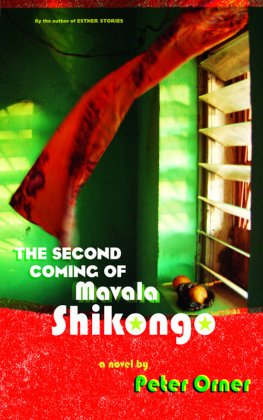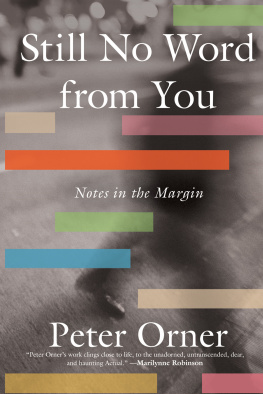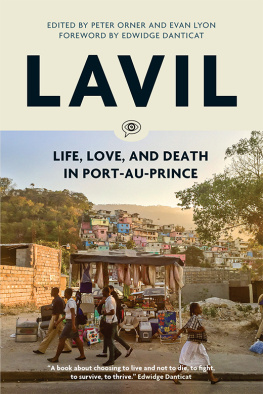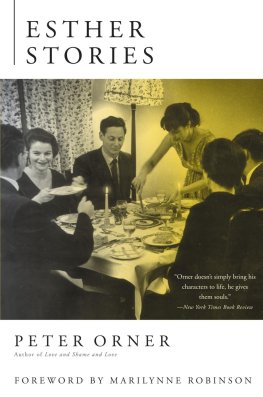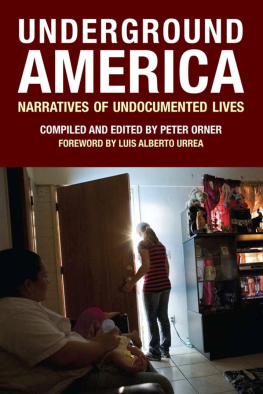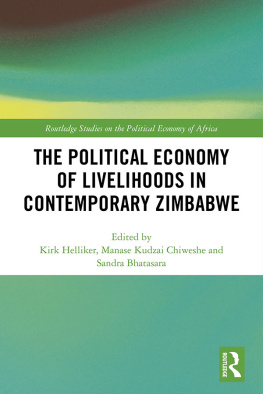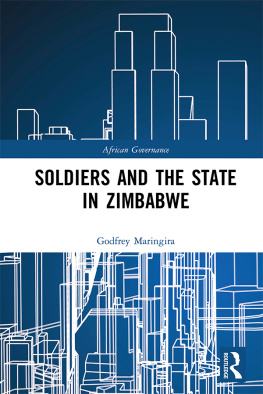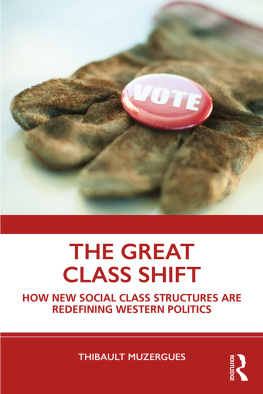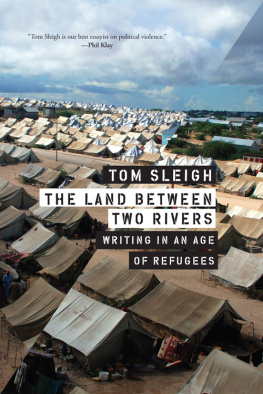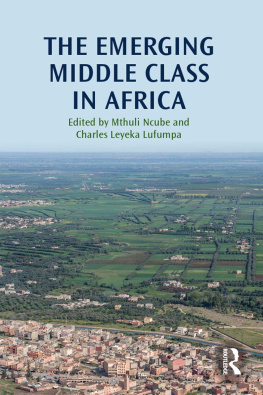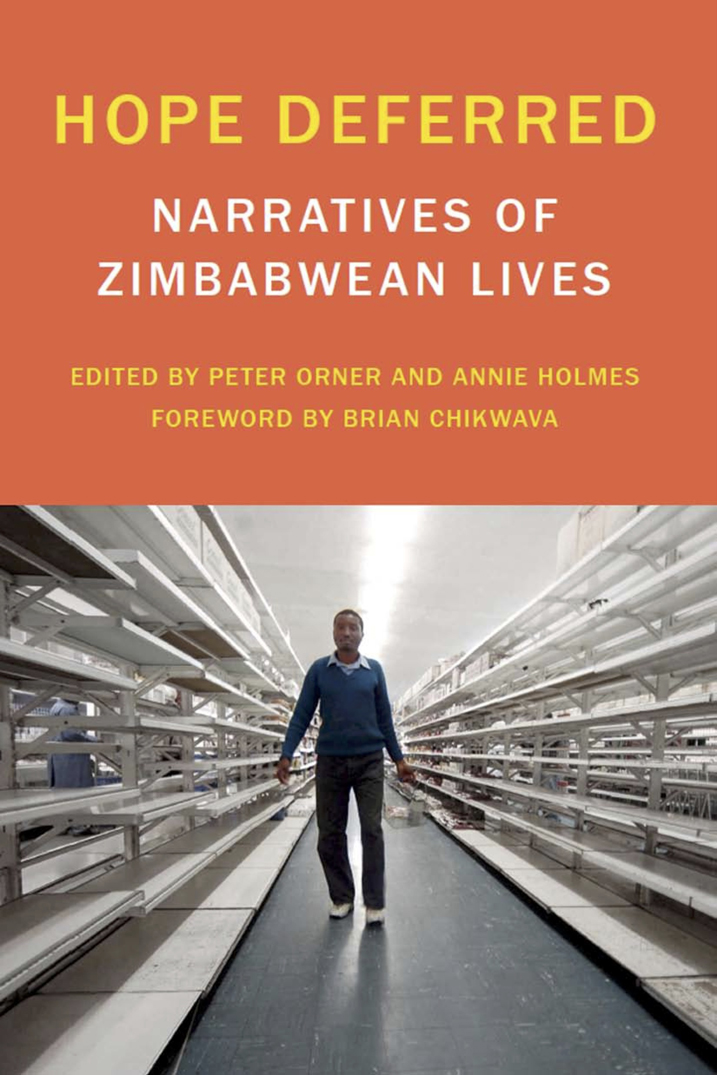HOPE DEFERRED
This book is dedicated to all the people who spent many hoursand in some cases dayssharing their stories with us.
And to the writer Charles Mungoshi


VOICE OF WITNESS

McSWEENEYS BOOKS
SAN FRANCISCO
For more information about McSweeneys, see mcsweeneys.net
For more information about Voice of Witness, see voiceofwitness.org
Copyright 2010 McSweeneys
Front cover photo by Bishop Asare/EPA
Back cover photo by Philimon Bulawayo/Reuters
All rights reserved, including right of reproduction in whole or part in any form.
McSweeneys and colophon are registered trademarks of McSweeneys Publishing.
ISBN (E-book): 978-1-940450-95-7
VOICE OF WITNESS

The books in the Voice of Witness series seek to illuminate human rights crises by humanizing the victims. Using oral history as a foundation, the series explores social justice issues through the stories of the men and women who experience them. These books are designed for readers of all levelsfrom high school and college students to policymakersinterested in a reality-based understanding of ongoing injustices in the United States and around the world. Visit voiceofwitness.org for more information.
VOICE OF WITNESS BOARD OF DIRECTORS

DAVE EGGERS
Author; Co-founder of 826National, the Valentino Achak Deng Foundation, and the Zeitoun Foundation
LOLA VOLLEN
Visiting Scholar, Institute for International Studies, UC Berkeley; Executive Director, Life After Exoneration Program
JILL STAUFFER
Assistant Professor of Philosophy; Director of Peace, Justice, and Human Rights Concentration, Haverford College
VOICE OF WITNESS BOARD OF ADVISORS

ROGER COHN
Former Editor-in-Chief, Mother Jones
MARK DANNER
Author, professor, UC Berkeley Graduate School of Journalism
HARRY KREISLER
Executive Director, Institute of International Studies, UC Berkeley
MARTHA MINOW
Dean, Harvard Law School
SAMANTHA POWER
Professor, Kennedy School of Government, Harvard University
JOHN PRENDERGAST
Co-Chair, ENOUGH Project
ORVILLE SCHELL
Arthur Ross Director, Asia Society
WILLIAM T. VOLLMANN
Author
FOUNDING ADVISOR
STUDS TERKEL
Author, oral historian
TRANSCRIBERS: Gabrielle Chiarenza, Joseph Chikowero, Kelly Connelly, Hannah Edber, Dominique Farrell, Teresa Iacobelli, Elizabeth Jewett, Esther Lam, Meghan Moran, Lindsay Pinkham, Nadia Prupis, Blair Rainsford, Kate Reeler, Brian Rutledge, Claire Sarraille, Laura Scott, Kizzie Shawkat, Meera Sinha, Jon Vandenberg. PROOFREADERS: Joseph Sunra Copeland, Jill Haberkern, John Knight, Ben Shattuck, Valerie Woolard. COPY EDITOR: Oriana Leckert. RESEARCH: Meritt Buyer, Jamie Falinski, Joanna Green, Kristina Kearns, Yumi Wilson. VOICE OF WITNESS SERIES EDITORS: Dave Eggers, Lola Vollen. EXECUTIVE DIRECTOR: mimi lok. DEVELOPMENT AND COMMUNICATIONS ASSOCIATE: Juliana Sloane. EDUCATION PROGRAM DIRECTOR: Cliff Mayotte.
CONTENTS
Guide
by Brian Chikwava, author of Harare North
It may be apposite to start in the tradition of the authorities of Zimbabwe by declaring that over the past decade this little country has been a land of milk and honey. Of course one way of reconciling this with the hard realityas the ordinary Zimbabwean always must in jaunty township barswould be to further the story and suggest that Zimbabweans are flies. For a fly that lands on honey is doomed, as is one that finds itself floating in a pail of milk. Only when it lands on dung does it truly strike bliss. Curious then how, given what has gone on in Zimbabwe over the past decade, bliss has been elusive, except for a few. Again, in the township bar, such discrepancy may be resolved by suggesting that it is not Zimbabweans that are flies per se, but their political elite who thrive on dung.
The disconnect between the stories told by a state and those told by its citizens at best obscures the moral choices that must be made, and some states may well prefer it that way. It is probably for this reason that the novelist Louis De Bernires once said that history ought to be made up of the stories of ordinary people only. Indeed, no matter how long one stares at the darker patches of a nations history, it is only from the low, street-level vantage point of the ordinary person that one is able to point a torch at the cost of the choices that nation is making or has already made. From the lofty heights of men of power the torchlight vanishes into the vast night long before it hits the ground. For that reason, yes, one can understand why political history must be read alongside social history; on its own the former becomes a vulgar abstraction of the truth if not a clanging lie, in which case it deservedly becomes the subject of ridicule in the local bar.
The histories, or stories that we tell ourselves, like the songs we sing, make us who we are. On the personal level, our stories are the tools by which we recall events of import in our own lives, how we interpret those events and ultimately how we hold our sense of self together when times are such that we could easily lose ourselves and our way. Once, I was told of a young and restless writer-woman living in exile in the capitals of Europe. Her family was a closely knit unit with whom she had lived for nearly all of her life, until she had to come to London. But exile is a hard place even for the toughest; one has to find a place in a new environment, wrestle loneliness, sometimes suffer a temporary loss of social language and be plunged into expansive silences in life. As is often said, you can be at your most lonely right in the middle of a throbbing crowd. In the crowd that is London, this young woman felt herself slipping through her own fingers. And so started a compulsion to call her family every evening and unfailingly relate her day to them and describe how her plans worked out. Asked why she felt that compulsion, her answer was that if she failed to talk over what had happened during her day, sometimes it felt as if it had not happened at all; what had happened and what had been imagined became impossible to tell apart. Probably a rare case, hers, but what can not be underplayed is what it says about the psychological significance of storytelling and holding onto ones self.
One reads this collection with heartbreak, at times laughter, but ultimately a sense of triumph against all odds. In some way a good number of the people behind these stories have, no doubt, been alone in the crowd of humanity heaving across our globe and known exile on so many levels, physically and in their minds. As the poet Gwyneth Lewis once shrewdly observed: exile, with its attendant loss of language, mimics depression, and vice versa. Yet perhaps the greatest achievement of this collection of stories is how it has enabled each of these individuals to emerge out of their blue depths clutching their experiences and to reclaim themselves in a manner at once irrepressible and life affirming. There are indomitable spirits like Elizabeth, whose fearlessly free-thinking instincts could not be accommodated within her family; quietly resilient individuals like Samuel, who have known what its like to have your innocence rudely yanked from your hands; the wild and unaffected George, who has witnessed brutality and prejudice by both the Rhodesian and Zimbabwean states; Aaron, who knows why the devils household has an appetite for its servants heads; and Zenzele, whose noble determination to serve the people saw him unwittingly step on the devils tail.


